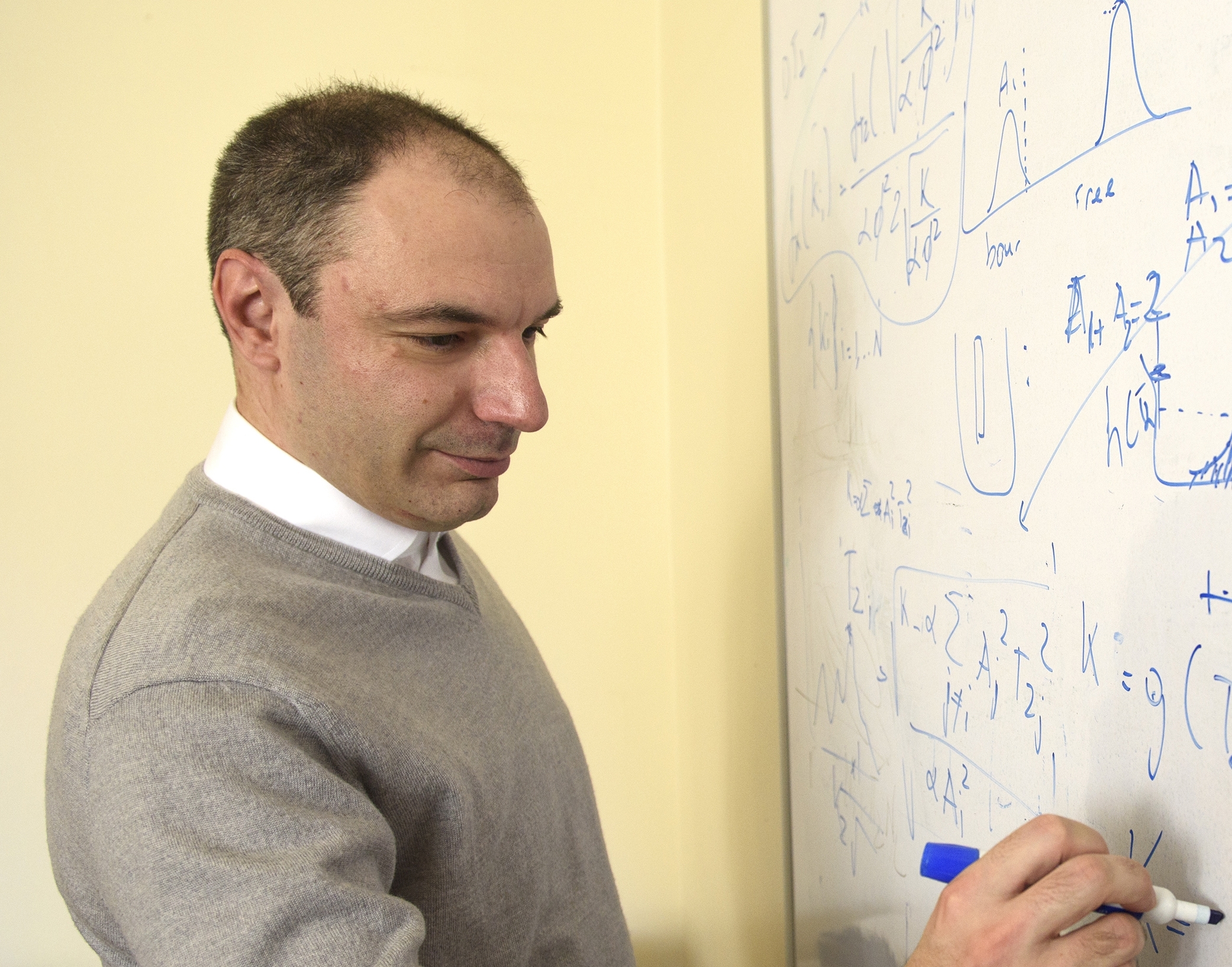GRADUATE SCHOOL IN GEOSCIENCE
Dario Grana, University of Wyoming
Dario Grana, University of Wyoming
What is graduate school in geoscience?
I grew up in a small town and I am a first-generation college student. I didn’t know what a PhD was until I was about to graduate. I had never heard that expression before and I didn’t know anybody with a PhD. Like many first-generation students, I have always found it difficult to ask questions about academic careers because it seemed that everybody else already knew the answers. I simply assumed it was another degree and that classes were more difficult. It took me a while to understand that the main goal of a PhD was not to take more difficult classes, but instead to work on a research project, and it was very surprising to learn that PhD students are paid to do research. It took me several years to decide to apply for graduate school. Luckily, it turned out to be one of the best decisions of my life. For this reason, I want to provide a roadmap to graduate school for all the students who are interested in doing research in geoscience.
The application process for graduate school is certainly challenging for undergraduate students who are not familiar with it. Before even starting the application, it is always recommended to contact professors in the field of interest (for example, critical zone science) to learn more about research opportunities, positions, and funding. Almost all graduate student positions in the United States are fully funded, either by the department or from external sources such as the National Science Foundation. The potential advisor is responsible for finding funding for the student and such funding generally includes a monthly stipend, tuition, and fees. When talking to potential advisors, I highly recommend discussing previous research experience as well as research interest so that the potential advisor can understand if their research field is a good fit for the candidate, encourage or discourage the application, or even suggest alternative advisors. Different advisors might have different mentoring and advising styles, and their dedication to graduate students might depend on other commitments such as teaching, research and service. The application itself requires multiple documents including resume, transcripts, proof of English proficiently (for international students only), recommendation letters, and in some cases standardized tests results such as the GRE (although many schools no longer require GRE scores).
Some students might receive multiple offers from various schools. Such a choice is always challenging. In addition to the obvious selection criteria, such as location and ranking of the school, it is always important to consider the work environment in terms of diversity, equity, and inclusion, as well as how your research interests align with the research field of the potential advisor. Before accepting an offer, students should discuss the potential research topic(s) with their advisor and think carefully about their research interests and expectations.
Overall, the primary goal of a graduate student is to conduct research with their advisor. In some groups, students are required or recommended to work as a teaching assistant for some semesters, which is great experience, especially for those interested in teaching and mentoring. The relationship between advisor and advisee is fundamental for the success of students in graduate school, as the advisor provides guidance, advice, and feedback. A general suggestion for incoming graduate students is to discuss expectations with the advisor. Discussion topics might include the frequency of one-on-one meetings, financial support, research expectations, project outcomes, and time commitment. Each student is different and has different needs.
And then there is the best part… the research, which is often fun and sometimes a little scary. Doing research in critical zone science means identifying a scientific question with the advisor, formulating hypotheses, developing a strategy to validate or reject such hypotheses, and hopefully discovering new results. It does not necessarily mean the new theory of relativity; it means finding some new results that nobody has obtained before and that will build a little piece of a bigger puzzle, a small step in the scientific progress. All these research elements end up in the final dissertation, and in several instances in a scientific publication that is reviewed by other scientists with expertise in the same field. Doing research is challenging, stimulating, satisfying, and often nerve wracking, but well worth it. Our group focuses on Critical Zone science, an interdisciplinary geoscience field that combines several disciplines including geology, geophysics, geochemistry, hydrology, and ecology, and includes field work, laboratory experiments and numerical modeling.
Despite starting with a limited knowledge of graduate school, I have always been extremely lucky to have great mentors who showed me how to conduct research, informed me about opportunities that I was not aware of, and taught me the ethical principles of science. For me, graduate school was one of the best times of my life. I was part of a fantastic research group, and I was exposed to a variety of research challenges. It has been almost 10 years since I got my PhD, and after having experienced several work environments as a faculty member, I have come to realize how lucky I have been and that not all graduate students might have the same fantastic experience. Hence, I feel it is my responsibility to make sure that all the students in the critical zone field receive adequate mentoring and support.

Dario Grana
(Former confused PhD student, current associate professor at the University of Wyoming)